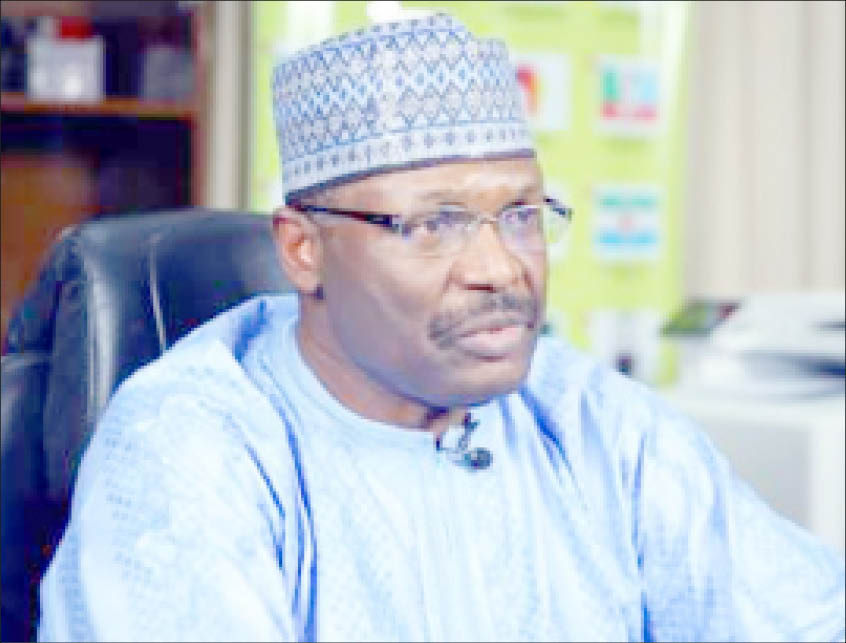Since the signing of the 2022 Electoral Act, people have been optimistic that INEC may succeed in conducting one of the most credible elections in Nigeria.
Even the statement that insecurity may force the elections to be postponed by the chairman did not change the mood. People are aware that this is outside his control, and there is little the commission can do.
The commission has had other planning challenges, but these issues are being rectified and can happen anytime in any given country. The current issue INEC should look at is the growing trend in Nigeria’s political scene where voters are polarised across ethnic and religious lines.
Section 97 of the 2022 Electoral Act has ruled against all campaigns based on religion or tribe. The law says: any candidate, person or association that engages in campaigning or broadcasting based on religious, tribal, or sectional reason to promote or oppose a particular political party or the election of a particular candidate commits an offence under this Act and is liable on conviction— (a) to a maximum fine of N1,000,000 or imprisonment for a term of 12 months or both; and (b) in the case of a political party, to a maximum fine of N10,000,000.
- Let selfless Nigerians emerge leaders – Afe Babalola
- NIGERIA DAILY: How Insecurity Turned Our Children to Scavengers- Niger Parents
The issue here is related to the ruling party, APC, which they are taking advantage of using a same-faith ticket. Legally, anyone can adopt a same-faith ticket and has been done in the past. The annulled 1992 election had a Muslim-Muslim ticket of Abiola-Kingibe candidacy under the SDP. Before MKO’s candidacy, there were two prominent Christian-Christian tickets in Nigeria’s second Republic election of 1979: Chief Awolowo with Philip Umeadi and Azikiwe of NPP with Ishaya Audu. They both contested against the eventual winners, Shagari-Ekwueme, under a Muslim-Christian ticket.
The current trend of Muslim-Muslim tickets started in 2019 at the state level in Kaduna. The strategy was designed by the ruling party under El-Rufai to polarise voters to gain an advantage over the population of Muslims in the state. The consequence of the transition from the traditional Muslim-Christian to a Muslim-Muslim ticket in Kaduna is an increased level of insecurity and community mistrust. Despite several calls, the ruling party has ignored the consequences because they are just interested in winning the elections.
Of course, politicians will think of a legal strategy to win regardless of fair representation. But the rationale behind the choice of these candidates shows they are not concerned about the common good of the people, given the evidence from Kaduna, where insecurity challenges have increased given the polarised nature of voters across extreme religious lines. The lesson shows that even though the Muslim-Muslim ticket is legal, it has not improved the living conditions of the people.
The Muslim-Muslim ticket has sent worrying signals to Christian groups, including CAN. The concern is that a potential win by the APC will mean a lack of inclusion for the Christian faith, and many hope history will repeat itself as it did in 1979.
The implicit response from the Christian-polarised group is to adopt Peter Obi. It is either by accident or design, but the action has not gone unnoticed. At one of Peter Obi’s church visits, he was heard urging the church to wake up and take back their country. At his campaign flag-off in Plateau, a pastor appeared to call for citizens to take back their country. It should be a normal message, but such messages are seen as a Zionist-like agenda in Muslim communities.
In response, the Izala JIBWIS group were brought together by Kano State governor, Ganduje, to endorse the Muslim-Muslim ticket. A cleric was seen on video saying a Muslim-Muslim ticket is better than a Muslim-Christian ticket, and they are more concerned about the ticket than the country’s current economic issues. Another video making the rounds shows a cleric saying that voting for a Muslim-Muslim ticket is jihad, creating more community distrust.
Both religions are suspicious of the other with accusations of Zionist-like agendas. The campaign opinion against each religion is similar: clerics are urging their followers to hold on to their extreme views to vote along religious lines. These clerics and politicians are speaking for themselves, not thinking of the common good, and are doing so against Section 97 of the 2022 Electoral Act.
Based on the shreds of video evidence in circulation, INEC should be able to enforce the law on those who broke it. The penalty under the Electoral Act does not look harsh enough but will deter the perpetrators if enforced. Surprisingly, INEC is silent about this. Its silence means it is either condoning it, reluctant to enforce Section 97, or unaware of what is happening. Whichever it is, it does not look good on the commission. They have been provided with all the resources they need for the elections.
The opposition parties have voiced their concerns, too. The parties that choose to play clean politics by discussing issues instead of polarising voters across religious lines will be treated unfairly, as there is a probability that Peter Obi or Tinubu might win by taking advantage of the polarised religious extremists.
In all seriousness, political parties have the opportunity to take advantage of extreme religious politics. Some take the moral-high ground to distance themselves from religious extremists. Parties campaigning under a traditional Muslim-Christian ticket, like the PDP, could positively benefit from both polarised groups. However, they have decided to avoid taking a religious supremacist position.
Therefore, INEC must enforce the law on those breaking it to ensure a free and fair election if security permits. Otherwise, the institution’s credibility and Buhari’s shaky legacy are at stake.

 Join Daily Trust WhatsApp Community For Quick Access To News and Happenings Around You.
Join Daily Trust WhatsApp Community For Quick Access To News and Happenings Around You.



